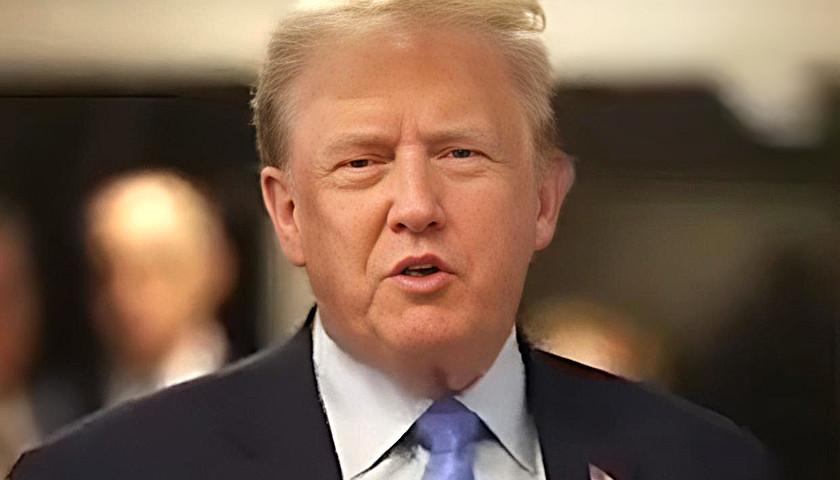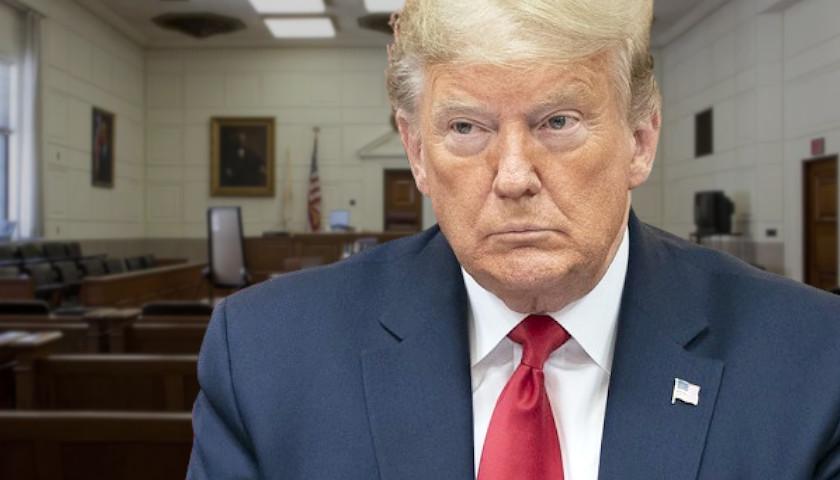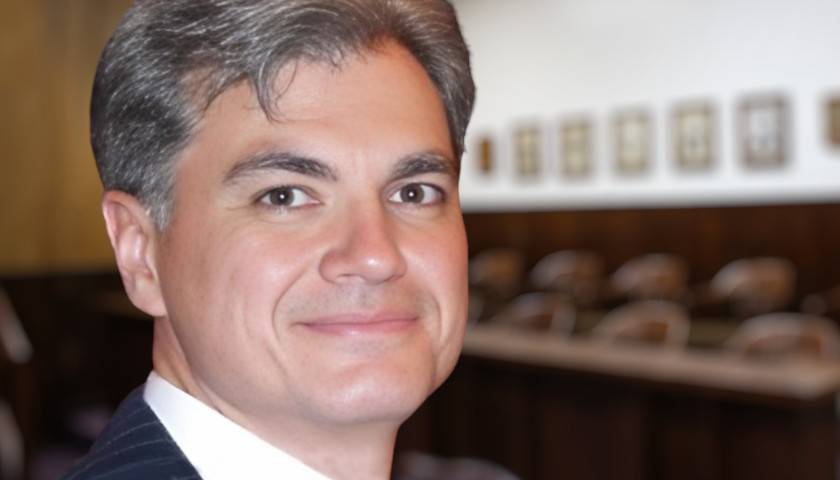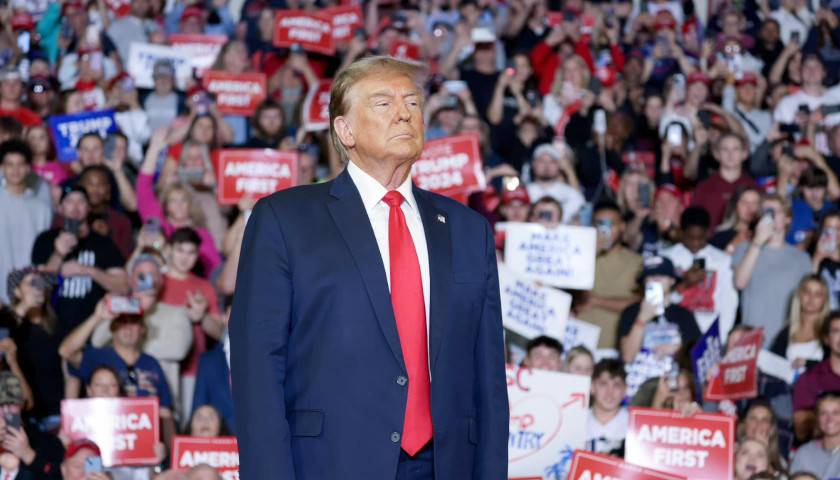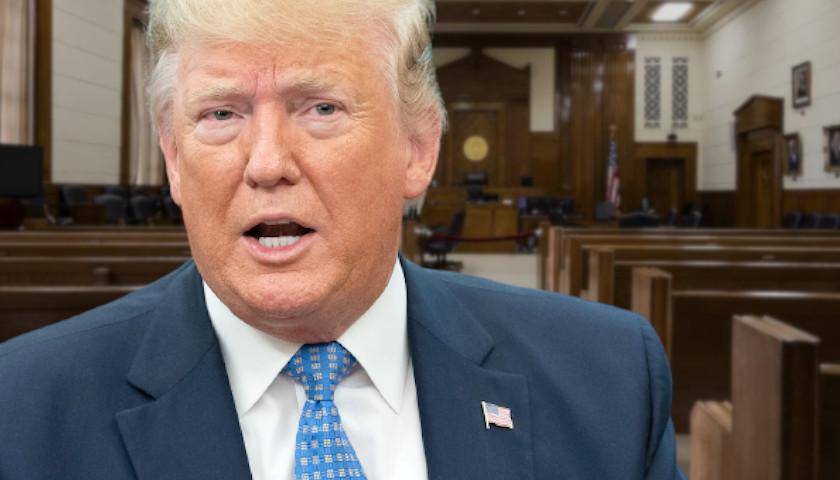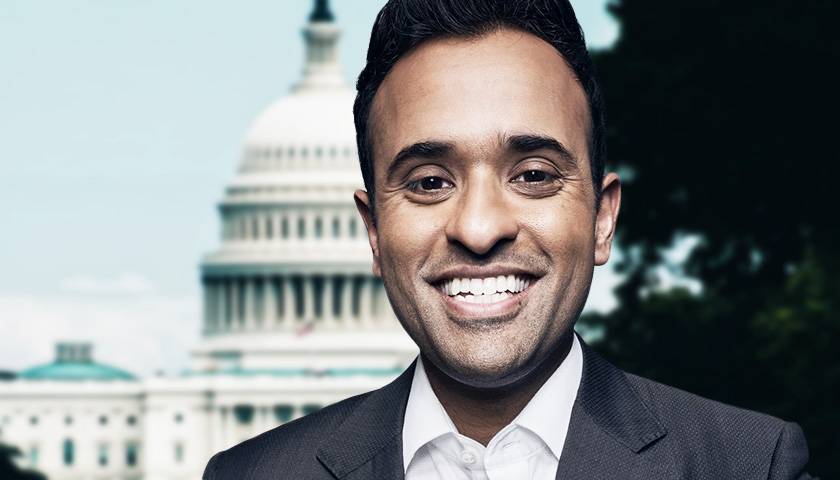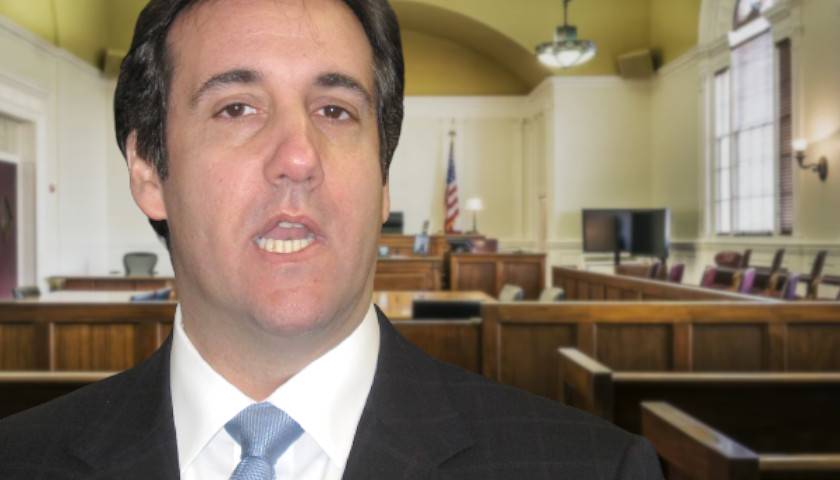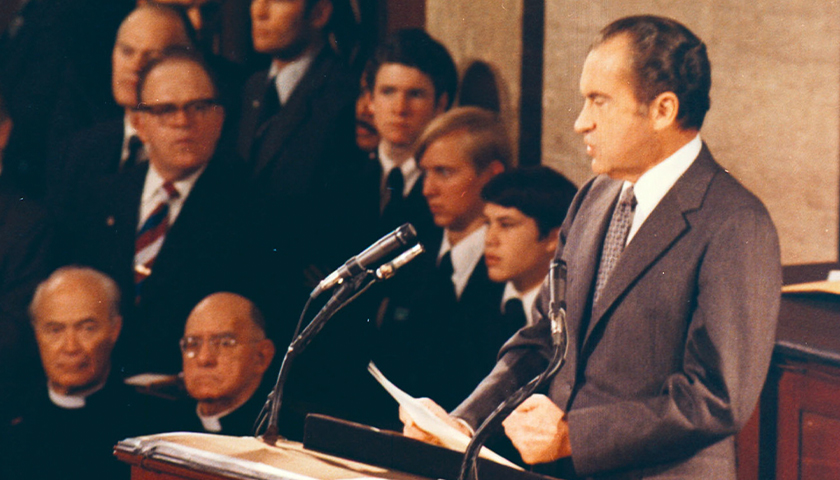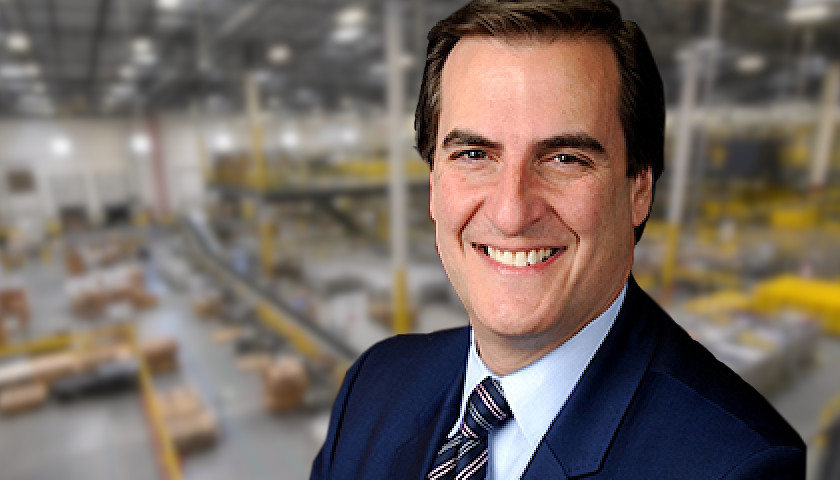Judge Juan Merchan on Tuesday agreed to delay issuing a decision on whether to toss out President-elect Donald Trump’s guilty verdict on state charges of falsifying business records until Nov. 19.
Read MoreTag: Hush Money
Federal Judge Rejects Trump’s Bid to Transfer Case to Federal Court
A federal judge ruled Tuesday that former President Donald Trump cannot transfer his New York criminal case to federal court.
Read MoreRule of Lawfare: Jury Instructions from NY Judge to Manhattan Jurors in Trump ‘Hush Money’ Case Contained Made-up and Selectively Chosen Language
A New York jury found former President Donald Trump guilty on all 34 criminal counts related to falsifying business records last week, prompting outcry that New York Judge Juan Merchan, who was handpicked to handle the case and who donated to Joe Biden, committed misconduct during the trial, including how he handled the jury instructions. A CNN senior legal analyst reported that the case was full of so many legal stretches that employees of Manhattan District Attorney Alvin Bragg’s office referred to it as the “zombie case.” Daniel Street, an attorney in Louisiana who writes about lawfare, told The Tennessee Star the jury instructions were “terrible.”
Read MoreVerdict Reached in Trump Hush Money Trial
New York Judge Juan Merchan announced a verdict has been reached in Trump’s hush money trial.
Read MoreNew York Judge Sets March 25 Trial Date for Trump ‘Hush Money’ Case, Denies Motion to Dismiss
Former President Donald Trump is set to go to trial on March 25 in New York on charges related to his alleged role in a hush money scandal before the 2016 election after a judge on Thursday denied his motions to dismiss.
Judge Juan M. Merchan denied Trump’s motions to dismiss and said jury selection in the trial will begin March 25, per The New York Times.
Read MoreRamaswamy: Taxpayers Shouldn’t Be Footing the Bill for Congress Members’ Hush Money Payoffs
In voicing his opposition to former President Trump’s indictment, tech entrepreneur and 2024 GOP presidential candidate Vivek Ramaswamy noted that taxpayers have been paying millions to settle sexual harassment claims in Congress.
“If you want to talk about hush money for sexual indiscretions by politicians,” he tweeted Friday, “consider this: in the past 25 years, the Office of Congressional Workplace Rights has paid a staggering $18.2 million of *taxpayer dollars* to settle 291 cases of sexual harassment & other misconduct committed by members of Congress.
Read MoreMemos from 2018-19 Shake Up Trump Case: Cohen Denied Having Incriminating Evidence on Hush Money
An attorney who advised disgraced Trump organization lawyer Michael Cohen provided Manhattan prosecutors with voluminous documentation, including contemporaneous emails and memos, purporting to show that in 2018 Cohen wanted Donald Trump to help cover his legal bills and repeatedly claimed he had no evidence incriminating the former president in a hush money deal with porn actress Stormy Daniels.
Read MoreCommentary: Fifty Years of Deep State Propaganda
As the 50th anniversary of the 1972 election approaches, it is time to reconsider the Watergate controversy that preceded and ultimately partially undid it. I’ve just completed a review for the New Criterion of Michael Dobbs’ new book about Watergate, King Richard. The book repeats endlessly, without any attempt at substantiation, that the Nixon presidency came apart and was righteously legally assaulted because of the infamous “cover-up” consisting mainly in the “hush money” Nixon authorized to be paid to Watergate defendants in order to “keep them quiet.” Once again, and as always, not one whit of evidence was presented in support of the argument that Nixon authorized these payments for any such purpose. It has passed into the universal history of the modern world that he did, but he always denied it. So did some of the defendants, and an exhaustive examination of the very extensive tapes and documents permits a different interpretation.
To the end of his life, Nixon claimed that he authorized the payments in order to assist the defendants in paying their legal bills and taking care of their families. This was particularly urgent in the case of Howard Hunt, whose wife died in an airplane crash shortly after the Watergate affair began. Nixon foresaw the zeal of hostile prosecutors and he knew that any jury in the District of Columbia would be hostile to Republicans. Moreover, as an experienced lawyer, he certainly knew that any large payments to groups of defendants obviously in exchange for silence or false testimony would be an open-and-shut case of obstruction of justice, and would qualify as a high crime justifying his impeachment, removal as president, and subsequent criminal prosecution. Yet this allegation is the core both of the impeachment charge against Nixon in 1974 and of the popularly accepted and endlessly repeated Watergate saga.
It is certainly time that Richard Nixon received balanced historical treatment. He must, of course, take principal responsibility for the disgrace and embarrassment of Watergate; he permitted, and at times encouraged, a tawdry atmosphere within the White House in which legalities were often treated a bit casually and Nixon rather self-servingly applied the Truman-Eisenhower latitudinarian version of national interest and the president’s practically unlimited right to define it. These were terrible tactical errors and no one can deny that Nixon paid heavily for them. But against that, and despite the fact that he was the first president since Zachary Taylor in 1848 to take office with neither house of Congress in the hands of his own party, Nixon enjoyed one of the most successful single terms in the history of the U.S. presidency.
Read MoreAmazon’s Use of Hush Agreements With Local Governments Facing Political Consequences
by Evie Fordham Amazon’s announcement Nov. 13 that it would split its second headquarters between New York City and Arlington, Virginia, is having some unintended political ramifications. Many of the 238 cities that competed for Amazon HQ2 signed nondisclosure agreements with the company as the parties discussed incentive packages, some…
Read More
